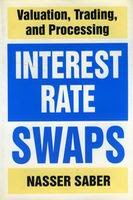More and more investors aren’t bothering to pore through corporate reports searching for gems and duds, but trading big buckets of stocks, bonds and commodities based mainly on macro concerns. As a result, all kinds of stocks — good as well as bad — are moving more in lock step.As proof, the paper interviewed several traders and fund managers, who said more or less the same thing.
David Pedowitz of Neuberger Beeman said that his efforts at stock picking felt “like an exercise in futility.”
James Bianco of Bianco Research said: “stock picking is a dead art [and] macro themes dominate the market now more than ever.”
Cindy Sweeting of Templeton said: “All stocks are moving in the same direction. I’ve spend three decades in this market, and it’s the most macro-obsessed I’ve seen in a long time.”
Hedge fund manager David Einhorn said: “The lesson that I have learned is that it isn’t reasonable to be agnostic about the big picture.”
Lou Gerken, a “veteran fund manager” who became so downbeat about stock picking that he decided to shut down his two stock funds, concurred, said that he “now is focusing on a global bond fund and spends his days reading macro-oriented publications.”
David, Jim, Cindy, Lou, the Other David, listen up now! What you have noticed is real: stocks do move in tandem. But there is more to the story. And it has nothing to do with the people’s “obsession”. It involves the dynamics of speculative capital. You’d need to read Vol. 1 of Speculative Capital. It is an easy book to read but it is not an airport novel; you have to pay attention to what you read.
Here are a few excerpts, to convince you that it has your answers:
Speculative capital is not bound to any one market or place. Rather, it is constantly on the lookout for profitable opportunities wherever it can find them. Upon finding such opportunities, it enters into these markets and, through arbitrage, “links” them together.The book then goes to examine the “linkage of the various segments of the national markets” such as bonds and stocks, and the linkage of international markets, with real-life examples.
Arbitrage is buying relatively undervalued A and selling relatively overvalued B. This buying and selling will tend to increase the price of A and decrease the price of B. If A and B happen to be in two different markets, and if the arbitrage is systematic, sustained and occurs on a large scale, the linkage goes beyond the individual products and encompasses the markets themselves. Movements in one market are then transferred to other markets.
The linkage knows no limits in terms of markets. It can target two similar or approximately similar markets in the same country, two separate markets within the same country, two similar markets in two different countries or different markets in different countries.
As for “poring through corporate reports searching for gems and duds” being passé? It, too, was made passé by speculative capital a long time ago. Speculative Capital quotes the Wall Street Journal of December 16, 1997:
At BNP/Cooper Neff, stocks aren’t companies in the industry sector. They are “mathematical objects.” … [The company’s president] thinks studying news and financial reports … is a waste of time … And the only way to beat the market … is to trade thousands of stocks, by the millions of shares, in search of tiny inefficiencies … he sees the world as 7,000 stocks to trade against one another in one gigantic hedge fund.Sound familiar?
But all this was the good news! David, Jim, Cindy, Lou and the Other David, wait for high frequency trading to become the only way of trading. You will look back at these years fondly, as perhaps the best years of your life.
Self destructiveness of speculative capital is not a potentiality, something that might or might not be realized. It is the logical, i.e., necessary, consequence of its form of its existence. Now I know that sounds confusing. But that is how speculative capital is, which is why attention must be paid whenever it is the subject of discussion.





